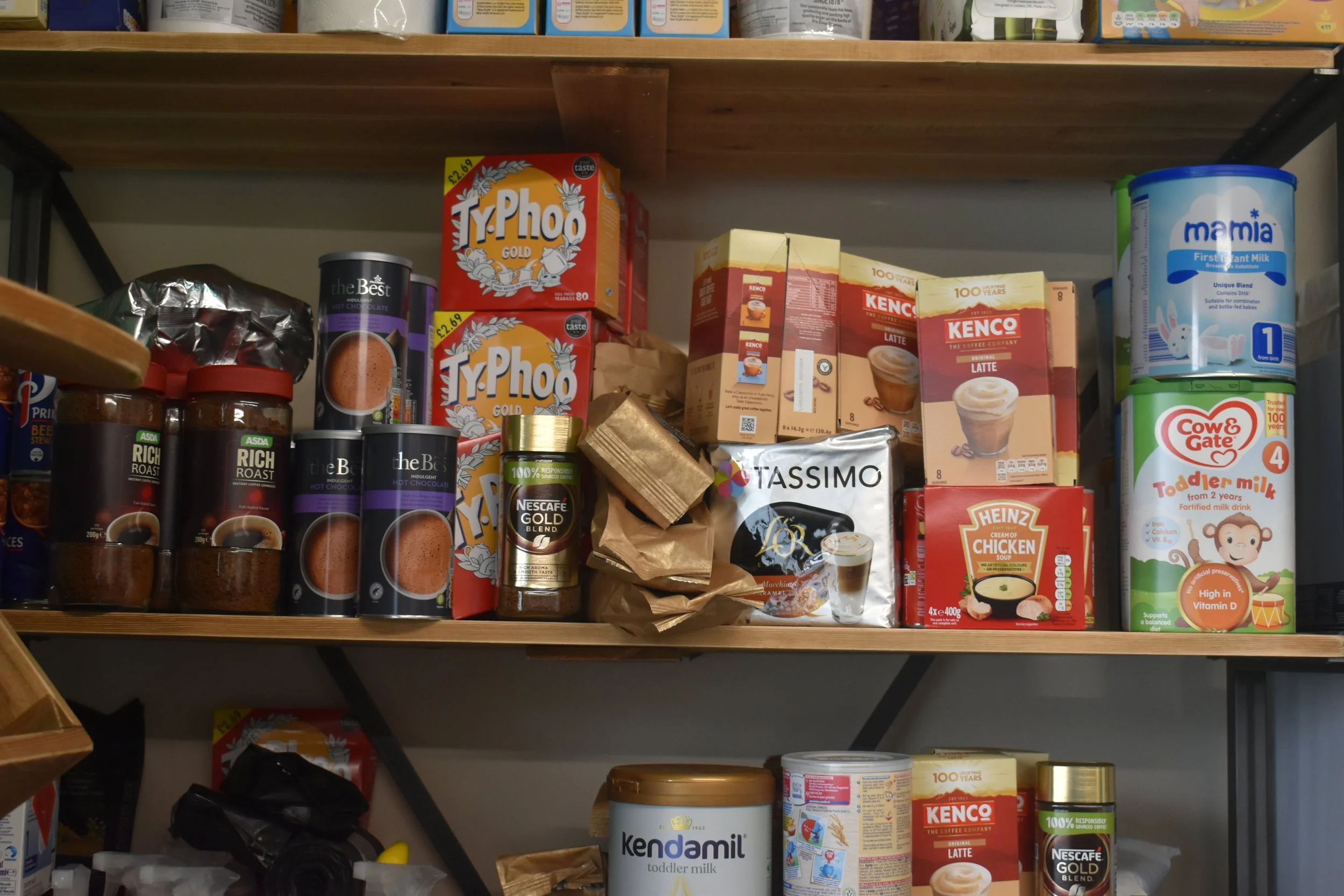Welcome to
Knowsley Foodbank
Knowsley Foodbank Supporting Our Community.
We at Knowsley Foodbank are dedicated to preventing and relieving poverty in Knowsley and nearby areas by running a food bank with compassion and care. We provide food, essential items, and guidance to individuals and families, connecting them with the services they need. Our heartfelt goal is to ensure that no one in our community faces the hardship of going without basic necessities.
We warmly invite the support of our community to help make a real difference—whether through donations, volunteering, or simply spreading the word about our work. By standing together, we can create a stronger support network for those in need, bringing hope and uplifting our neighbours and community during challenging times.
If you need any help or information
please get In touch
-
Knowsley Foodbank was founded in 2011 to support people in crisis who cannot afford food. People can self-refer through the Citizens Advice Bureau; we also receive referrals from community partners and agencies. including schools, healthcare professionals and support agencies such as Social Services. Reasons for referrals are many and varied, but there are trends for referrals because of redundancy, benefit delays, benefit sanctions and reduced or inadequate wages or benefits. We also find the unmanageable personal debt can compromise a seemingly adequate income, leading to a need for foodbank support.
Foodbank clients receive ambient food, toiletries and personal care items as per the Trussell Trust guidelines. To prevent generating dependency, clients are usually given no more than three food parcels within a twelve-month period. However, where there is a genuine need, we will support for longer. All foodbank clients are encouraged to access support with the causes of their food crisis, either through referral to a Big Help Project service such as Big Help Debt Advice, or to an external agency. During Covid-19, the three-parcel guidelines were suspended to accommodate the unique circumstances of the pandemic, which saw us feed over 77,000 people in 2021. We are funded by the local authority, and have been funded by Trussell Trust, grant-awarding bodies and businesses, and regularly receive food donations from individuals, schools, businesses and the civic community.
-
How Foodbanks work
Every day people in the UK go hungry for reasons ranging from redundancy to receiving an unexpected bill on a low income. A simple box of food makes a big difference, with foodbanks helping prevent crime, housing loss, family breakdown and mental health problems.
FOOD IS DONATED
Schools, churches, businesses and individuals donate non-perishable, in-date food to a foodbank. Large collections often take place as part of Harvest Festival celebrations and food is also collected at supermarkets.
FOOD IS SORTED AND STORED
Volunteers sort food to check that it’s in date and pack it into boxes ready to be given to people in need. Over 40,000 people give up their time to volunteer at foodbanks.
PROFESSIONALS IDENTIFY PEOPLE IN NEED
Foodbanks partner with a wide range of care professionals such as doctors, health visitors, social workers and police to identify people in crisis and issue them with a foodbank voucher.
CLIENTS RECEIVE FOOD
Foodbank clients bring their voucher to a foodbank centre where it can be redeemed for three days’ emergency food. Volunteers meet clients over a warm drink or free hot meal and are able to signpost people to agencies able to solve the longer-term problem.
-
Our foodbank is part of The Trussell Trust’s network of 428 foodbanks, working to tackle food poverty and hunger in our local communities, as well as across the UK.
The Foodbank Network was founded in 2004 after four years of developing the original foodbank based in Salisbury. Since then The Trussell Trust has helped communities work together to launch foodbanks nationwide in a wide range of towns and cities.
In 2020/21, The Trussell Trust’s Foodbank Network provided 2,537,198 three-day emergency food supplies and support to UK people in crisis. Of these, 980,082 went to children.
As a network, we want to see more people helped out of crisis and fewer people needing foodbanks in the future. That’s why The Trussell Trust and local foodbanks are working together to develop new ways to help people out of crisis through programmes like More Than Food.
To find out more about The Trussell Trust visit www.trusselltrust.org






